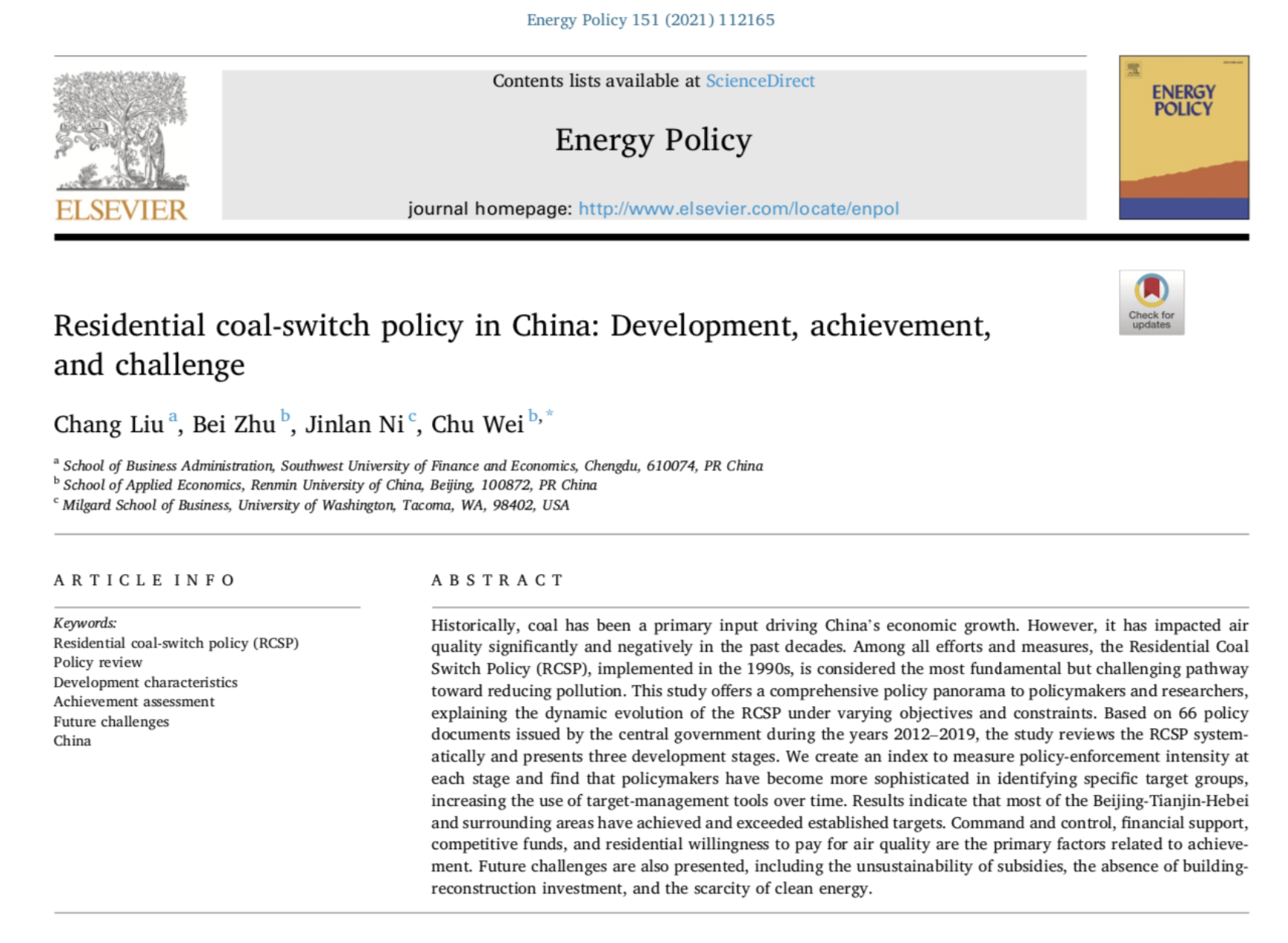Dr. ChuWei recently had a paper published in the EnergyPolicy.The paper titled‘Residential coal-switch policy in China: Development, achievement, and challenge’, was coauthored with Chang Liu from School of Business Administration, Southwest University of Finance and Economics, Bei Zhu from School of Applied Economics, Renmin University of China, and Jinlan Ni from Milgard School of Business, University of Washington.

Abstract
Historically, coal has been a primary input driving China’s economic growth. However, it has impacted air quality significantly and negatively in the past decades. Among all efforts and measures, the Residential Coal Switch Policy (RCSP), implemented in the 1990s, is considered the most fundamental but challenging pathway toward reducing pollution. This study offers a comprehensive policy panorama to policymakers and researchers, explaining the dynamic evolution of the RCSP under varying objectives and constraints. Based on 66 policy documents issued by the central government during the years 2012–2019, the study reviews the RCSP systematically and presents three development stages. We create an index to measure policy-enforcement intensity at each stage and find that policymakers have become more sophisticated in identifying specific target groups, increasing the use of target-management tools over time. Results indicate that most of the Beijing-Tianjin-Hebei and surrounding areas have achieved and exceeded established targets. Command and control, financial support, competitive funds, and residential willingness to pay for air quality are the primary factors related to achievement. Future challenges are also presented, including the unsustainability of subsidies, the absence of building- reconstruction investment, and the scarcity of clean energy.
Other information
Publication Date:2021
Journal:Energy Policyy
Journal Issue: 151(2021)
DOI:https://doi.org/10.1016/j.enpol.2021.112165
Read the paper here.